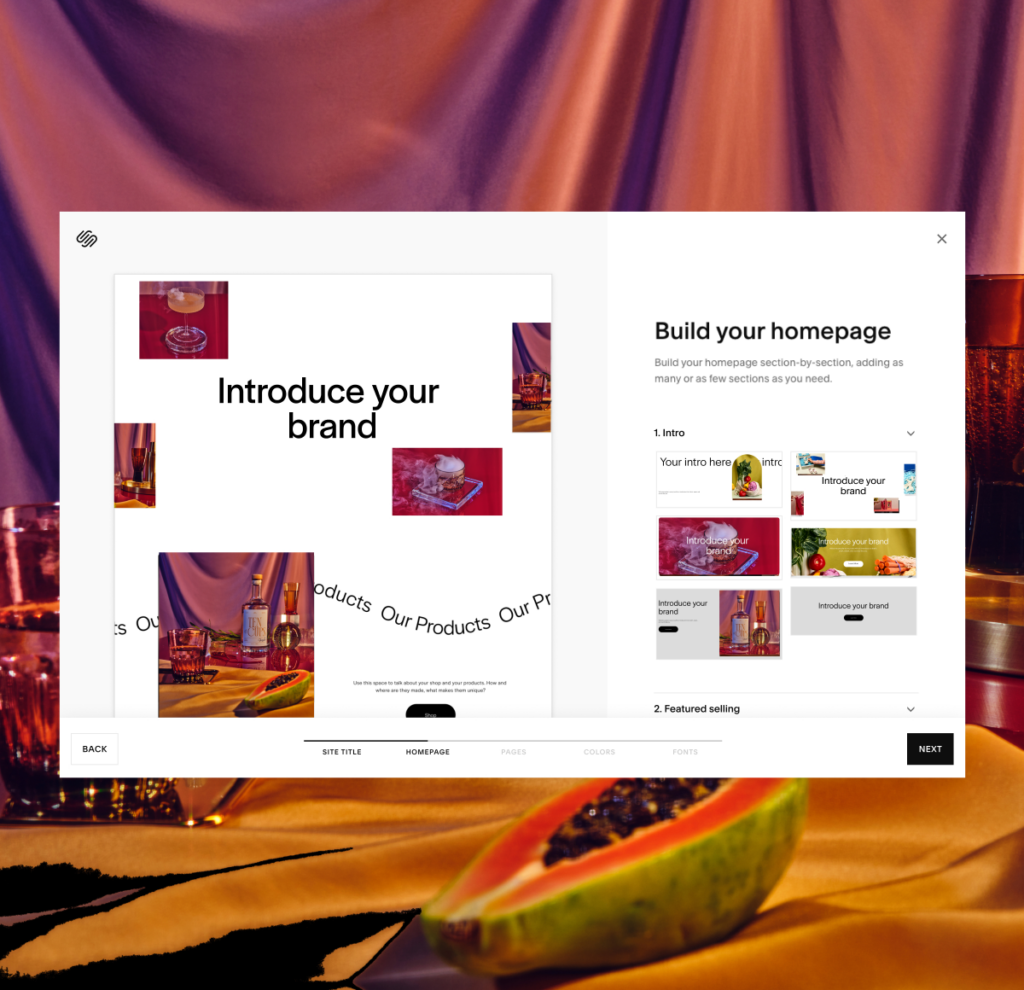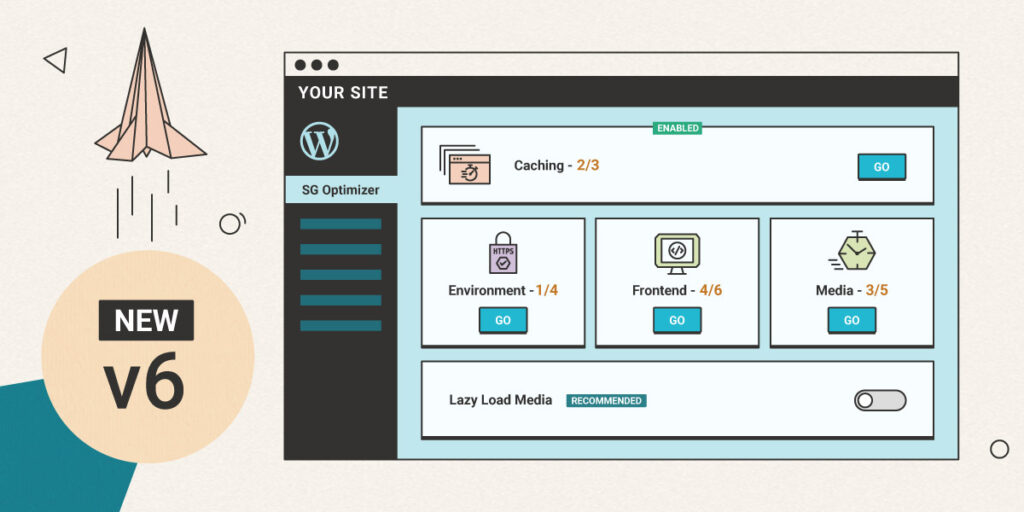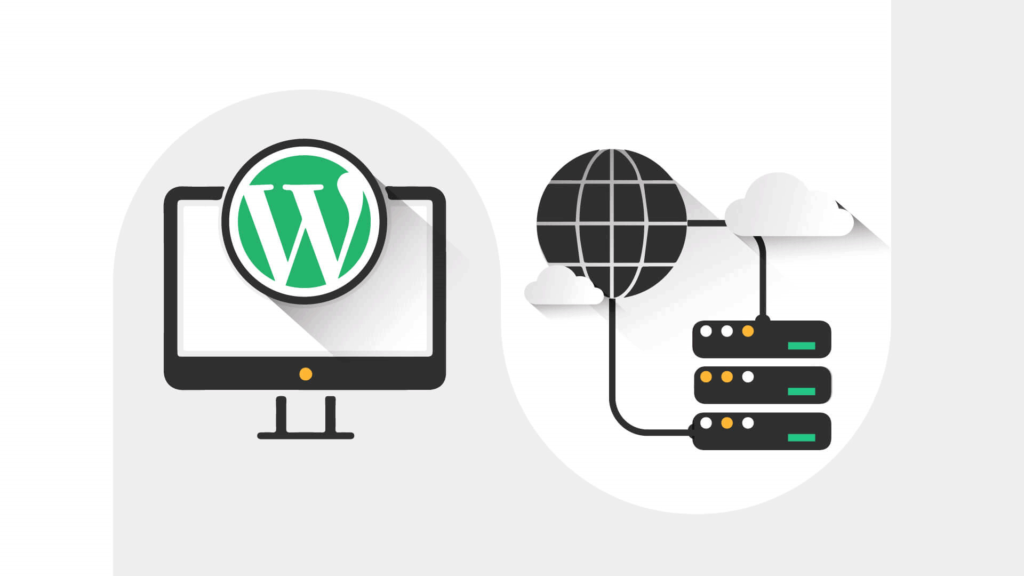Table of Contents
Ready to start making money online through affiliate marketing? Choosing the right website builder is crucial to your success. In this guide, you’ll dive into the best website builders designed to make your affiliate marketing journey smoother and more profitable.
Whether you’re a seasoned marketer or just starting, these tools will help you create professional, high-converting websites without needing to code. Get ready to explore platforms that offer the perfect blend of ease, flexibility, and features tailored for affiliate marketing.
1. Wix
Wix is ideal for affiliate marketing due to its ease of use, customizable templates, integrated SEO tools, and scalability, allowing quick setup and effective promotion of affiliate products.
- Offers a user-friendly drag-and-drop interface.
- Provides a wide range of customizable templates.
- Includes built-in SEO tools.
- Supports various e-commerce features.
- Allows easy integration with third-party apps.
- Limits design flexibility compared to advanced platforms.
- Lacks full control over website code.
- Imposes higher costs for premium features.
- Restricts scalability for larger websites.
- Includes Wix branding on free plans.
- Drag-and-Drop Editor: Easily design websites without coding knowledge.
- Customizable Templates: Access to hundreds of professionally designed templates.
- App Market: Integrate third-party apps for enhanced functionality.
- SEO Tools: Built-in tools to optimize your site for search engines.
- Mobile Optimization: Automatically creates a mobile-friendly version of your site.
- E-commerce Capabilities: Manage an online store with features like product listings, payment gateways, and inventory management.
- Blogging Platform: Create and manage a blog with customizable layouts.
2. Squarespace
Consider Squarespace for affiliate marketing because of its sleek templates, user-friendly interface, built-in SEO tools, and easy integration with affiliate links, making it perfect for creating professional sites.
- Provides elegant, professional templates.
- Offers built-in SEO tools.
- Supports easy integration of e-commerce and affiliate links.
- Ensures reliable hosting with 24/7 support.
- Limits customization compared to other platforms.
- Charges higher pricing tiers.
- Lacks advanced features for complex websites.
- Requires a learning curve for some design elements.
Squarespace:
- Offers a set of features for selling products and services online, including the ability to process credit card transactions, accept PayPal, issue refunds, and receive donations.
- Provides an integrated shopping cart, allowing customers to browse products, add items to their cart, checkout, and pay without leaving the site.
- Offers a drag-and-drop editor that provides users with total control over website design.
- Provides features to help position websites on search engines, offering strong search engine optimization capabilities.
3. Weebly
Weebly is a great choice for affiliate marketing because it offers an intuitive interface, flexible templates, strong SEO features, and scalability, simplifying the process of building and expanding a professional site.
- Provides a range of customizable and responsive templates to create a professional-looking site.
- Includes built-in SEO tools to help improve search engine rankings and drive organic traffic.
- Supports e-commerce features, allowing easy integration of affiliate products and payment options.
- Equips users with analytics tools to monitor site performance and optimize strategies.
- Enables scalability, allowing you to start small and expand as your business grows.
- Limits advanced customization options compared to more flexible platforms like WordPress.
- Charges additional fees for some advanced features, which can increase costs as your site grows.
- Restricts access to certain third-party apps and plugins, limiting functionality.
- Provides fewer options for integrating complex marketing automation tools.
- Offers basic blogging capabilities, which may not be sufficient for content-heavy affiliate sites.
- SEO Tools: Weebly offers basic SEO tools to help optimize your website for search engines. This includes options for editing meta tags, URLs, and image alt text, as well as generating sitemaps and connecting to Google Analytics.
- Blogging Platform: Weebly includes a blogging feature that allows users to create and manage blog posts. The platform supports various content types, including text, images, and videos, making it easy to produce engaging blog content.
- App Center: Weebly has an App Center where you can find and integrate various third-party apps to extend your website’s functionality. These apps cover a range of features, including marketing, social media, and site management tools.
- Mobile App: Weebly provides a mobile app that lets you manage your website on the go. You can edit your site, track traffic, and manage orders from your smartphone or tablet.
- Hosting and Security: Weebly includes web hosting as part of its service, so users don’t need to worry about finding separate hosting providers. It also offers SSL encryption for secure data transmission, which is crucial for e-commerce sites.
- Analytics and Reporting: Weebly provides analytics tools that give insights into your website’s performance. You can track visitor behavior, page views, traffic sources, and conversion rates, helping you make data-driven decisions.
4. Shopify
Choose Shopify for its comprehensive e-commerce platform, offering powerful tools for store management, payment processing, and inventory tracking. With customizable templates, integrated marketing features, and strong customer support, Shopify is ideal for scaling online businesses efficiently.
- Offers a comprehensive e-commerce solution with powerful tools for managing online stores.
- Provides a wide range of customizable templates that are mobile-responsive and visually appealing.
- Supports multiple payment gateways, making it easy to accept payments globally.
- Includes robust inventory management and order tracking features.
- Delivers excellent customer support, available 24/7 through various channels.
- Charges transaction fees unless you use Shopify Payments, which can add up over time.
- Requires a monthly subscription, which can be expensive for small businesses.
- Limits customization unless you have coding knowledge or use paid themes and apps.
- Lacks native email marketing features, often requiring third-party apps for advanced marketing.
- Offers a steep learning curve for beginners due to its extensive features and options.
- Storefront Design: Shopify provides a variety of professionally designed, customizable templates that are mobile-responsive. Users can personalize their store’s appearance using an intuitive drag-and-drop editor or by editing the theme’s code.
- Product Management: The platform allows users to easily add, organize, and manage products. You can create product variants (such as size and color), set up collections, and manage inventory with automated stock tracking.
- Payment Processing: Shopify supports a wide range of payment gateways, including its own Shopify Payments, PayPal, and major credit card processors. This makes it easy to accept payments from customers around the world.
- Shopping Cart and Checkout: Shopify provides a secure and user-friendly checkout process with features like abandoned cart recovery, which helps to capture sales from customers who leave before completing their purchase.
5. SiteGround
Go for SiteGround for affiliate marketing due to its reliable performance, excellent customer support, fast loading speeds, strong security features, and user-friendly interface, ensuring a smooth experience for managing and optimizing your site.
- Provides excellent customer support with 24/7 live chat and phone options.
- Offers strong security features including daily backups and free SSL certificates.
- Includes a user-friendly interface and easy-to-use website builder.
- Delivers reliable performance with solid uptime and fast loading speeds.
- Supports a variety of CMS platforms, including WordPress, with optimized hosting.
- Has higher renewal rates compared to some other hosting providers.
- Limits the number of websites and storage space on lower-tier plans.
- Imposes restrictions on certain server resources, which might affect performance under high traffic.
- Customer Support: 24/7 support through live chat, phone, and ticketing system, known for its high quality and responsiveness.
- Performance: Uses SSD storage for faster data retrieval, and offers caching solutions like SuperCacher to improve website speed.
- Security: Includes free SSL certificates, daily backups, and advanced security features such as AI-driven threat detection and custom firewall rules.
- User Interface: Provides an easy-to-use control panel with one-click installations for popular CMS platforms like WordPress.
- Site Management Tools: Includes staging environments for testing changes, automatic updates, and built-in content delivery network (CDN) integration.
- Email Hosting: Offers email hosting services with custom domain email accounts and webmail access.
PRO TIPS >>> Hostinger Website Builder Review
6. Webflow
Webflow is a powerful web builder offering customizable design, responsive layouts, and SEO tools, making it ideal for affiliate marketing. It enables seamless integration of affiliate links, eye-catching visuals, and efficient site management.
- Enables advanced design customization with a visual editor and code access.
- Offers responsive and flexible layouts that work well on various devices.
- Provides built-in SEO tools for optimizing search engine visibility.
- Includes integrated CMS and e-commerce features for diverse needs.
- Delivers fast page load times with built-in hosting and performance optimizations.
- Requires a learning curve for those unfamiliar with design or web development.
- Limits some advanced functionality unless using custom code or third-party integrations.
- Comes with higher costs for advanced features and larger sites.
- Visual Designer: Allows for drag-and-drop website design with a high degree of customization, blending visual design with code.
- CMS Functionality: Provides a content management system to create and manage dynamic content, such as blogs and portfolios.
- Responsive Design: Enables the creation of responsive websites that adjust seamlessly across different devices and screen sizes.
- E-commerce Integration: Includes tools for building and managing online stores, including product management, shopping carts, and payment processing.
- SEO Tools: Features built-in SEO controls like meta tags, alt text, and sitemap generation to improve search engine rankings.
7. Ghost
Ghost is a minimalist web builder designed for content-focused sites, ideal for affiliate marketing. It offers fast performance, built-in SEO, and simple content management, making it easy to create and maintain affiliate content.
- Includes a clean, minimalist design perfect for content-focused sites.
- Offers built-in SEO tools to enhance search engine visibility.
- Provides fast performance and quick loading times.
- Supports easy content management and publishing.
- Allows for custom themes and integrations with third-party services.
- Lacks advanced e-commerce features, limiting options for online sales.
- Requires technical knowledge for customizations and self-hosted setups.
- Has fewer built-in design options compared to more extensive builders.
- Limits support for complex interactions and animations.
- Content Management: Simplifies writing, editing, and publishing with an intuitive editor designed for content-focused sites.
- Speed and Performance: Offers fast loading times and optimized performance for quick page delivery.
- SEO Optimization: Includes built-in SEO tools such as meta tags and automatic sitemaps to enhance search engine visibility.
- Customizable Themes: Supports custom themes and templates for personalized design, with access to the code for deeper customization.
- Subscription Management: Provides features for managing email newsletters and subscriptions, including automated email campaigns.
- Analytics Integration: Integrates with analytics tools for tracking website performance and visitor behavior.
Overview of Best Website Builders For Affiliate Marketing

If you’re diving into affiliate marketing, pick the right website builder to streamline your process. Wix offers easy drag-and-drop design with built-in SEO tools, while Squarespace provides sleek templates and comprehensive analytics. Weebly is simple, budget-friendly, and perfect for beginners. Shopify is ideal for affiliate marketers focused on e-commerce.
For robust performance and security, pair SiteGround with WordPress. Webflow caters to advanced users who want complete design freedom. Ghost is a content-focused platform, great for blogging and monetization. Choose the one that fits your goals and start building.
How to Choose the Best Website Builders For Affiliate Marketing
Start by identifying your affiliate marketing goals. Prioritize website builders with strong SEO tools to boost your search rankings. Opt for those offering customizable templates that match your brand’s aesthetic. Ensure the platform supports integrations with affiliate marketing tools like tracking software and email marketing services.
Look for built-in analytics to monitor performance. Choose a builder with fast loading times to enhance user experience. Consider scalability options for future growth. Don’t forget to read reviews and test out free trials to gauge ease of use before committing.
GET SMARTER >>> Shopify vs OpenCart
Pros and Cons of Best Website Builders For Affiliate Marketing
Pros
- Offers ease of use with drag-and-drop interfaces, making website creation accessible even for beginners.
- Provides customizable templates tailored for affiliate marketing, ensuring a professional look without needing design expertise.
- Includes built-in SEO tools, helping to optimize content and improve search engine rankings.
- Supports integration with various affiliate networks and tools, streamlining the process of adding affiliate links.
- Ensures mobile responsiveness, making your site accessible and visually appealing on all devices.
Cons
- Limits customization in some cases, especially with more basic or budget-friendly builders.
- Imposes potential restrictions on adding advanced features or custom code, which may be necessary for more complex affiliate strategies.
- Charges monthly or annual fees, which can add up over time, particularly if you opt for premium plans.
- Requires reliance on the builder’s platform, which may pose challenges if you ever wish to migrate your site.
What To Watch Out For

When choosing a web builder for affiliate marketing, ensure it offers easy customization, so your site stands out. Watch out for tools that simplify SEO optimization; this is crucial for driving traffic. Be cautious about the integration of affiliate links—it must be seamless. Check for mobile responsiveness because most users browse on their phones.
Look out for analytics tools; tracking performance is key. Finally, beware of hidden fees or limits on features, which could restrict your growth. Choosing wisely will set the foundation for your success in affiliate marketing.
Pro Tips
- Prioritize ease of use, you don’t want to waste time grappling with complicated tools.
- Look for robust SEO features, these will help your site rank higher and attract more traffic.
- Choose a builder with seamless affiliate link integration, it should be simple to add and manage your links.
- Ensure mobile responsiveness, your site must look great on all devices.
- Opt for strong analytics tools, track your performance, and tweak your strategy as needed.
- Check for scalability, make sure the platform can grow with your needs.
- Be aware of hidden fees, and ensure there are no surprises that could impact your budget.
Recap
When considering the best web builder for affiliate marketing, choose a platform that is user-friendly to streamline your setup. Ensure it has strong SEO tools to boost your site’s visibility. Look for seamless affiliate link integration for smooth operations. Confirm that it’s mobile-responsive to reach users on any device.
Select a builder with comprehensive analytics to monitor performance effectively. Check for scalability to accommodate future growth and be mindful of hidden fees to avoid unexpected costs. By focusing on these aspects, you’ll set a solid foundation for a successful affiliate marketing site.














